- Clone
- 1F07-2C01 (See other available formats)
- Regulatory Status
- RUO
- Other Names
- Vascular endothelial growth factor (VEGF), VEGF-A, VEGFA
- Isotype
- Rat IgG, κ
- Ave. Rating
- Submit a Review
- Product Citations
- 4 publications
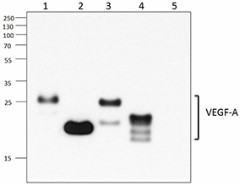
| Cat # | Size | Price | Save |
|---|---|---|---|
| 512901 | 50 µg | ¥22,970 | |
| 512902 | 200 µg | ¥52,160 |
VEGF-A, also known as VEGF (vascular endothelial growth factor), is the founding member of the family including VEGF (VEGF-A), VEGF-B, VEGF-C, VEGF-D, VEGF-E, and PIGF. Vascular endothelial growth factors (VEGFs) are a family of secreted glycoproteins that belongs to structurally related superfamily of dimeric growth factors with a cysteine knot motif. This superfamily includes platelet-derived growth factor (PDGF) and transforming growth factor (TGF) family. VEGF-A plays important roles in both vasculogenesis and angiogenesis, including tumor associated angiogenesis and vascular leakage. VEGF-A is produced by diverse cell types, including aortic vascular smooth muscle cells, keratinocytes, macrophages and many tumor cells. Oxygen tension is a key physiological regulator of VEGF-A gene expression.
Product DetailsProduct Details
- Verified Reactivity
- Mouse
- Antibody Type
- Monoclonal
- Host Species
- Rat
- Immunogen
- N-terminal 24 aa sequence of murine VEGF
- Formulation
- Phosphate-buffered solution, pH 7.2, containing 0.09% sodium azide.
- Preparation
- The antibody was purified by affinity chromatography.
- Concentration
- 0.5 mg/ml
- Storage & Handling
- The antibody solution should be stored undiluted between 2°C and 8°C.
- Application
-
WB - Quality tested
IHC-F - Reported in the literature, not verified in house - Recommended Usage
-
Each lot of this antibody is quality control tested by Western blotting. For Western blotting, the suggested use of this reagent is 0.5 - 2.0 µg per ml. It is recommended that the reagent be titrated for optimal performance for each application.
- Application Notes
-
Immunohistochemistry: Clone 1F07-2C01 is recommended for IHC on saponin-treated frozen tissue sections at a concentration range of 5-10 µg/ml.
It is recommended that the reagent be titrated for optimal performance for each application. -
Application References
(PubMed link indicates BioLegend citation) -
- Reinders MEJ, et al. 2003. J. Clin. Invest. 112:1655.
- Kirsch AH, et al. 2012. Am J Physiol Renal Physiol. 303:569. PubMed.
- Product Citations
-
- RRID
-
AB_2212504 (BioLegend Cat. No. 512901)
AB_2212503 (BioLegend Cat. No. 512902)
Antigen Details
- Structure
- cystine-knot growth factors
- Distribution
-
aortic vascular smooth muscle cells, keratinocytes, macrophages and many tumor cells
- Function
- angiogenesis
- Cell Targets
- endothelial cells
- Receptors
- VEGFR-1 (Flt-1) and VEGFR-2 (KDR/Flk-1)
- Cell Type
- Macrophages
- Biology Area
- Angiogenesis, Cell Biology, Immunology
- Molecular Family
- Cytokines/Chemokines, Growth Factors
- Antigen References
-
1. Contreras A, et al. 2007. Am. J. Transpl. 7:155.
2. Lambrechts D and Carmeliet P. 2007. Biochim. Biophys. Acta. 1762:1109.
3. Tong JP and Yao YF. 2006. Clin. Biochem. 39:267.
4. Reinders MEJ, et al. 2003. J. Clin. Invest. 112:1655
5. Ferrara N,et al. 2003. Nat. Med. 9:669.
6. Shibuya M. 2001. Cell Struct. Funct. 26:25.
7. Senger DR, et al. 1983. Science 219:983. - Regulation
- HIF-1, hypoxiaresponsiveness
- Gene ID
- 22339 View all products for this Gene ID
- UniProt
- View information about VEGF-A on UniProt.org
Related FAQs
Other Formats
View All VEGF-A Reagents Request Custom Conjugation| Description | Clone | Applications |
|---|---|---|
| Purified anti-mouse VEGF-A | 1F07-2C01 | WB,IHC-F |
Customers Also Purchased
Compare Data Across All Formats
This data display is provided for general comparisons between formats.
Your actual data may vary due to variations in samples, target cells, instruments and their settings, staining conditions, and other factors.
If you need assistance with selecting the best format contact our expert technical support team.
-
Purified anti-mouse VEGF-A
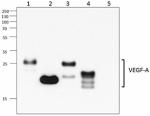
Western blot analysis of 50 ng of recombinant mouse VEGF-164...








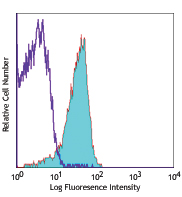
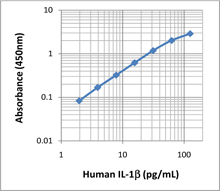
_121609.jpg)
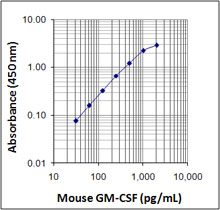







Follow Us